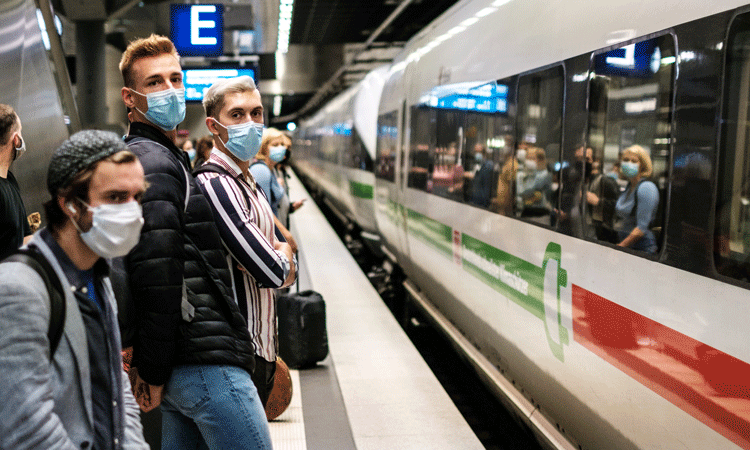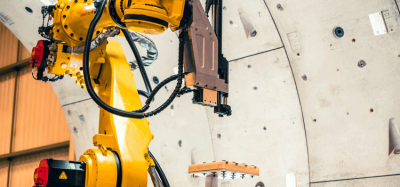CER’s COVID-19 Impact Tracker shows improvement over summer 2021
Posted: 29 September 2021 | Global Railway Review | No comments yet
CER’S latest COVID-19 Impact Tracker results demonstrate partial improvement in rail passenger services, yet a worsening situation for rail freight services and infrastructure managers.


The results are in from the September 2021 update of the ‘CER COVID-19 Impact Tracker’, carried out by the Community of European Railway and Infrastructure Companies (CER). Although there are some signs of improvement in rail passenger services, the survey registers none for rail freight services and in fact a worsening of the financial situation of infrastructure managers.
In August 2021, reported monthly revenue losses were around:
- -30 per cent for passenger services (compared to 2019 pre-COVID-19 crisis times), i.e. 20 per cent better than the beginning of the year (-50 per cent);
- -10 per cent for freight services (compared to 2019 pre-COVID-19 crisis times), unchanged;
- -10 per cent for infra services (compared to 2019 pre-COVID-19 crisis times), practically unchanged.
Passenger services
Significant and continuous improvement of passenger volumes (in p.km) are recorded since May 2021, after a drastic reduction of passenger volumes by -2/3 during the previous 6 months, from November 2020 to April 2021. Although halved, volume losses (in p.km) still lie at around -1/3 in August 2021 compared to the same period of 2019.
Passenger-related revenues (in €) also register a lesser loss of close to -30 per cent in August, after a significant 6-month low of more than -50 per cent from November 2020 to April 2021.
Freight services
There is no significant improvement on the freight side. Revenues (in €) remain low, close to -10 per cent compared to 2019 levels, as the international logistics market remains bearish. There was not enough data to report on volume variations (in t.km) but, for those companies who provided both revenue and volume data, volume and revenue losses tend to correlate over time and are of a similar magnitude.
Infrastructure services
A similar situation on the infrastructure side, with revenues (in €) down almost -10 per cent compared to 2019, whereas volumes (in train-km) appear to have returned to 2019 levels during the summer months (0 per cent). This, however, hides substantial differences among infrastructure managers with three of them showing particularly high losses in revenues, mostly due to a lowering of infrastructure charges not fully compensated by their authorities.
The gap between volumes and revenues seem to worsen to the detriment of revenues, as infrastructure managers lower charges while not getting fully compensated by their authorities.
In view of these continuous losses and taking into account the central role that rail plays in greening of transport sector, CER would like to reiterate the importance of adequate and timely financial support towards rail.
Cumulated losses
The cumulated losses suffered by the whole rail sector (passenger and freight) from the beginning of the COVID-19 pandemic until end June 2021, amount to close to €42 billion.
“CER is reporting an improvement of the situation on the passenger side, but the financial impact of the pandemic remains dire in the whole rail industry,” said Alberto Mazzola, CER Executive Director. “At the 2021 Rail Summit of 17 May 2021, Ursula von der Leyen stressed ‘how important it is that the rail sector emerges stronger from COVID-19, and that EU needs rail as a sustainable mode of transport more than ever to achieve the EU Green Deal goals’. With more than €40 billion total loss since the beginning of the COVID-19 crisis, railway undertakings are recording operational losses that will have an impact on their capacity to invest, for instance in rolling stock. Railways are grateful for the important investments in rail infrastructure supported by Next GenerationEU, the European and national budgets, however in the current COVID-19 crisis support to operations is paramount.”
Stay Connected with Global Railway Review — Subscribe for Free!
Get exclusive access to the latest rail industry insights from Global Railway Review — all tailored to your interests.
✅ Expert-Led Webinars – Gain insights from global industry leaders
✅ Weekly News & Reports – Rail project updates, thought leadership, and exclusive interviews
✅ Partner Innovations – Discover cutting-edge rail technologies
✅ Print/Digital Magazine – Enjoy two in-depth issues per year, packed with expert content
Choose the updates that matter most to you. Sign up now to stay informed, inspired, and connected — all for free!
Thank you for being part of our community. Let’s keep shaping the future of rail together!
Related topics
Cargo, Freight & Heavy-Haul, Coronavirus/COVID-19, Infrastructure Developments, Passenger Experience/Satisfaction, Rolling Stock Orders/Developments
Related organisations
Community of European Railway and Infrastructure Companies (CER), Next GenerationEU







